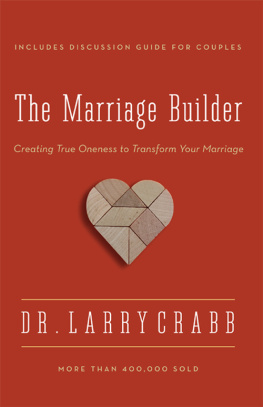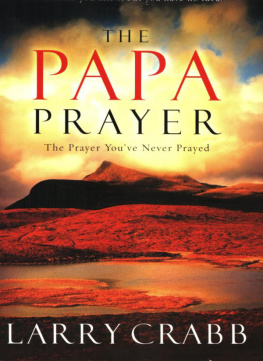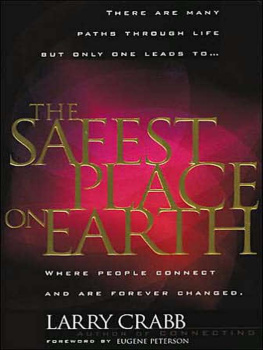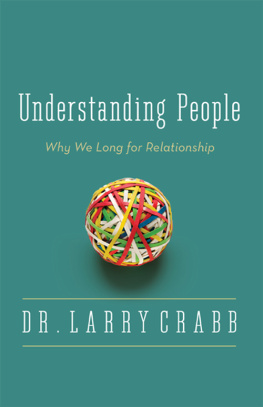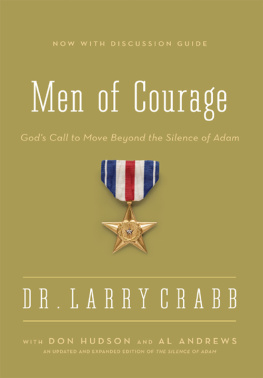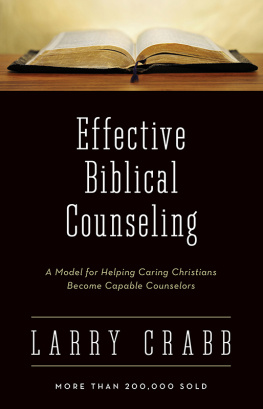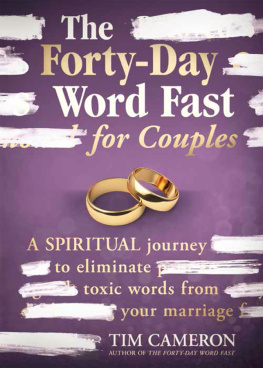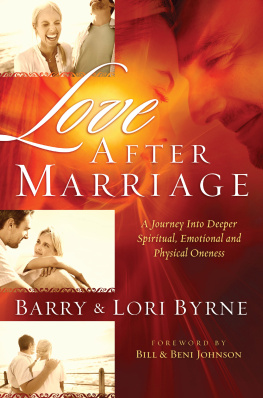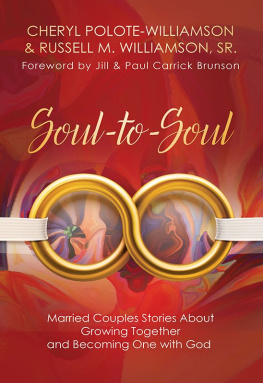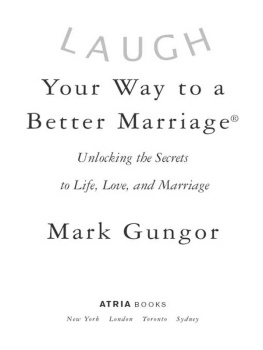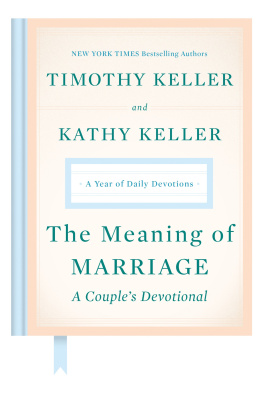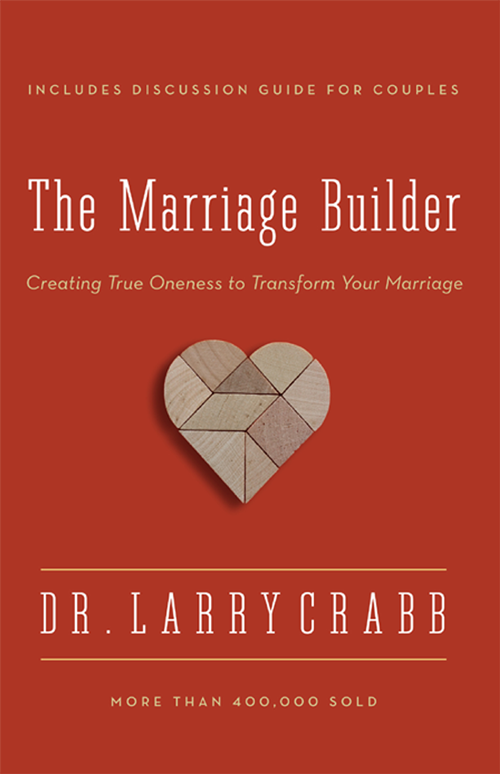I ran into a respected spiritual leader at a recent conference for men. He told me he had been counseling a couple whose marriage was in bad shape. After making no progress with them for months, he gave them a copy of The Marriage Builder and asked them to read it. They did, together, in a weeks time.
The change was dramatic, he said. They understood the difference between manipulation and ministry. The Spirit used your book to turn their marriage around. I thought you might be encouraged to know that your book is still having an impact.
I was encouraged and grateful. Ive heard many such stories since the first edition of the book was published in 1982. But I also know that so much more needs to be done. Regrettably, marriages today are in no better shape than they were more than thirty years ago. The me generation has morphed into the angry and demanding entitled generation. Fulfilling personal needs is the ultimate value, even among far too many Christians. Glorifying God has been reduced to a nice religious phrase.
More than ever, this generation young adults, those in middle age, and older folks needs to hear that marriage presents a unique opportunity to put the gospel of Jesus Christ into practice. Self-centeredness can be replaced by sacrifice. Selfishness can be forgiven. Loving another as an expression of our love for God and our denial of self becomes the road to joy. It really is more blessed to give than receive.
S olomon wrote, Is there anything of which one can say, Look! This is something new? It was here already, long ago; it was here before our time (Ecclesiastes 1:10).
Another book on marriage. Could there possibly be anything new in this one? Isnt it time we stop writing books that dress up old truth in modern fashion and just get on with doing what we already know to do? Will Solomons complaint be a fitting epitaph to this discussion of marriage?
More than once I have pictured the wise but weary king of Israel slowly wandering through the aisles of a Christian bookstore, searching for real help in repairing his many marital fractures. In my imagination, after several hours of thumbing through scores of books with eye-catching covers that promise to revolutionize your marriage, old Solomon ambles toward the door with slumped shoulders and sighs, Of making many books there is no end, and much study wearies the body (Ecclesiastes 12:12).
Daydreams like this compel me to explain why I have written one more book under the threat of Solomons sigh.
In the years when I was a psychologist in private practice, I was often troubled to see husbands and wives locked into patterns of relating that destroyed any hope of developing a deeply satisfying closeness in their marriages. Whenever I stand before a congregation to preach, I look out on many attractive, seemingly happy couples singing praise to the Lord for his gift of abundant and eternal life, and yet I suspect that very few are experiencing substantial intimacy. But a large majority of these people are professing Christians who would report that they are sincerely trying to develop their marriage according to biblical principles.
Why, then, are marriages so often filled with tension, bitterness, distance, shallow satisfactions, routineness, and short-lived moments of romance? Why do I sometimes face a problem within my own marriage and, after earnest prayer and brutal self-examination, remain unsure how to respond to my wife in a way that will deepen our oneness?
Are there real solutions that will develop true intimacy? Or must we resign ourselves to publicly reciting appropriate phrases about how God designed marriage while privately wondering why these sacred principles dont really work? Many of us have read dozens of books on family relationships. Weve listened to the best evangelical speakers on the Christian home. And we have been richly blessed and helped. But somehow a cloud remains. Something still isnt quite together. Why?
I believe that part of the answer to these troubling questions lies in some dangerous undercurrents in our thinking about Christian marriage. These ideas have enough truth in them to disguise their insidious errors. Much of the evangelical community appears to have unconsciously accepted these misguided notions, and they are subtly undermining the effect of good biblical teaching on the family. In the many years I have counseled couples puzzled over their inability to make their marriages work, I often perceived the influence of one or more of four wrong ideas.
1. The Bible offers a quick fix. Perhaps the idea that concerns me most is the assumption that the Bible reduces complicated issues to a few easily solved problems. We live in the day of instant remedies. One little pill changes restless insomnia to peaceful sleep. A quick Internet search provides instant answers to almost any question we can think of. I wonder how many of us have come to expect quick and simple solutions to our marital problems and look for a one-two-three formula for straightening out badly twisted relationships.
One problem contributing to this simplistic thinking is a well-intentioned overreaction to the tendency of many professional counselors to excuse sinful living on grounds of psychological complexity. It is regrettable that many Christian psychologists talk more about such things as unconscious motivation and emotional damage than they do about sin and responsibility. The net effect is to weaken the influence of the Bibles insistence that we choose to live righteously. A number of Christians and I am among them react strongly to any view that explains sinful behavior as the understandable consequence of psychological forces. This concern has resulted in two polarized camps: one group, preoccupied with deep processes of human functioning, holds that sinful living is less the result of rebellious unbelief than the symptom of emotional disorder; the other group focuses its attention on conscious, intentional choices, insisting that problems of living are explained solely in terms of willful acts of sin.
In the latter view, if a husband criticizes his wife, the matter essentially comes down to whether or not he will choose to put off the old self with its fleshly bitterness and put on the new self characterized by love and gentleness. If he does not treat his wife in a Christlike manner, he is regarded, not as emotionally disturbed, but as stubbornly sinful. Adherents of the former view would likely probe into feelings of inadequacy, hostility toward women, and other psychological factors to determine the underlying problem behind this inappropriate behavior.
I am unalterably opposed to any line of thinking that undermines the concept of personal responsibility, and I find myself in general agreement with those who insist people are accountable for choosing godly responses to lifes situations. Nevertheless, I am concerned that our renewed emphasis on responsible choices may tend to promote a superficial view of sin. Sin appears to be defined exclusively in terms of our behavior. What we

